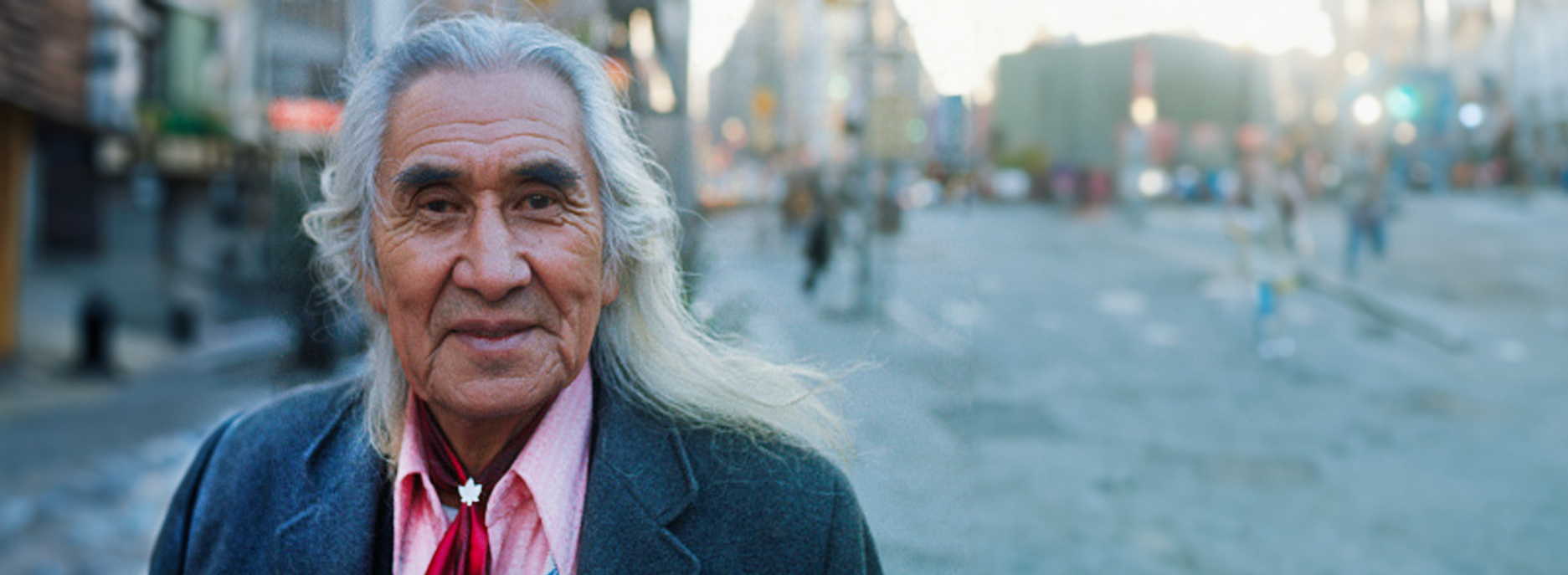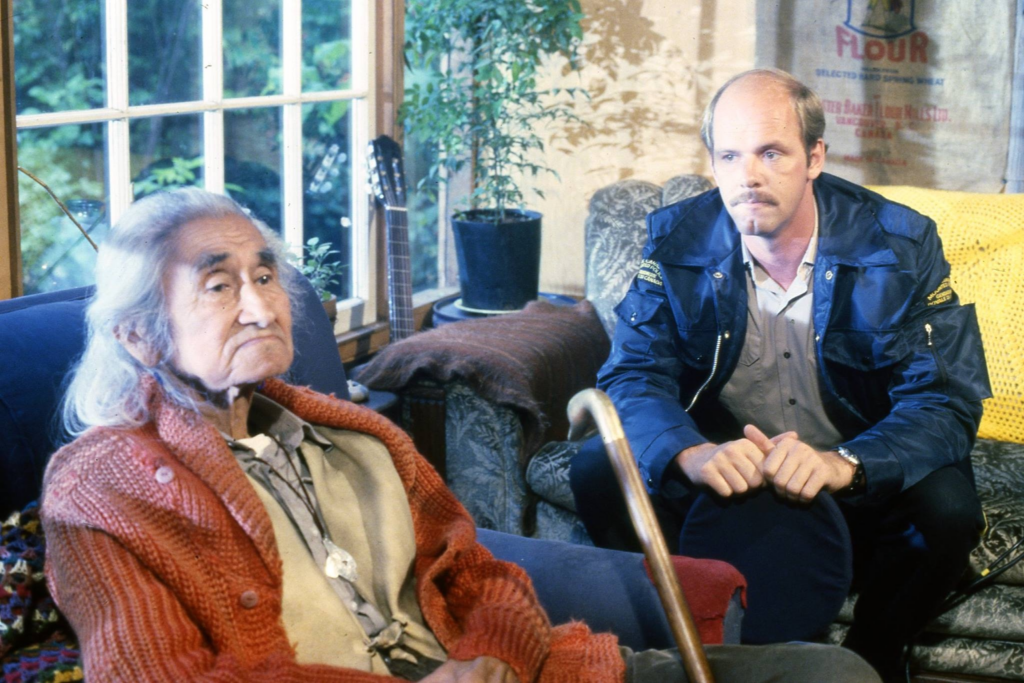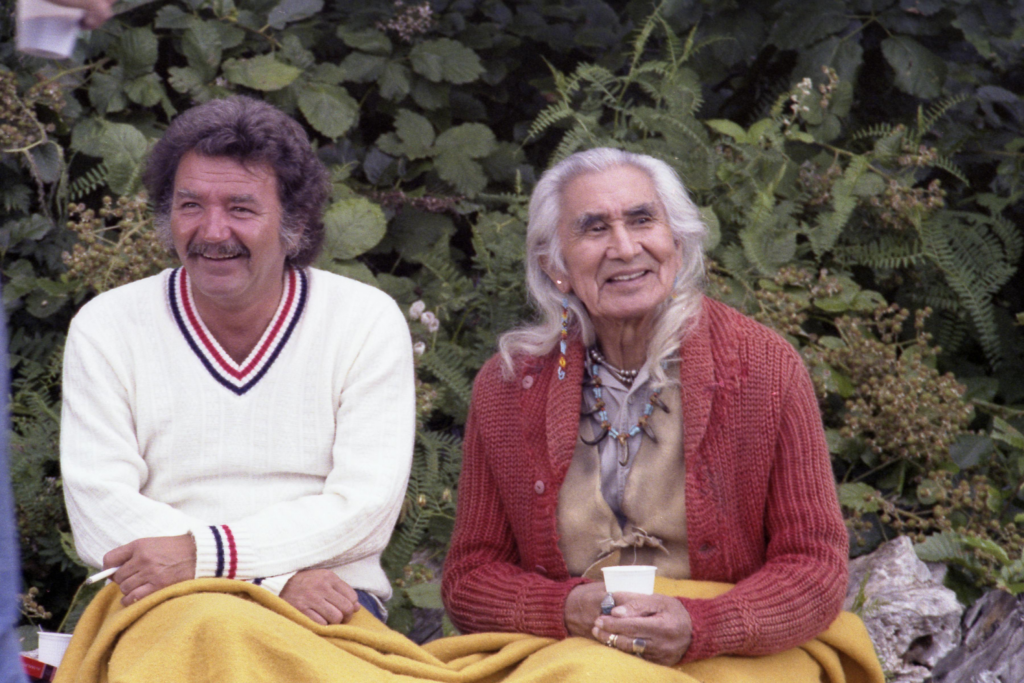
A Legacy of Advocacy
By Staff
Chief Dan George, steadfast in his refusal to accept roles that demeaned Indigenous peoples, was a pivotal figure in advancing their rights in North America. Widely regarded as the first well-known Indigenous screen performer in North America, his activism profoundly reshaped the narrative of Indigenous people on and off screen.
Born in 1899 to the Tsleil-Waututh Nation in North Vancouver, George (born Geswanouth Slahoot) served as chief of the Tell-lall-watt tribe of the Coast Salish Nation from 1951 to 1963. He was also an honorary chief of the Squamish and Shuswap bands.
Before embarking on a career in film and television, George worked as a dockworker, musician, and poet. His acting career began serendipitously when CBC Vancouver invited him to audition for their new Western series, Cariboo Country, while he was touring British Columbia as a musician in the late 1950s. His starring role in this series marked the beginning of his celebrated acting career.
Cariboo Country was notable for challenging many stereotypes of the Western genre, portraying guns as tools for hunting rather than instruments of violence. The series also broke new ground by casting Indigenous actors in Indigenous roles.
Chief Dan George’s role as Old Lodge Skins in Little Big Man alongside Dustin Hoffman earned him an Academy Award nomination, making him the first Indigenous actor to receive such recognition.
George’s talent caught the attention of Hollywood. In the 1960s and 1970s, he appeared in several notable films and television shows. His role as Old Lodge Skins in Little Big Man (1970) alongside Dustin Hoffman earned him an Academy Award nomination, making him the first Indigenous actor to receive such recognition. He also received accolades from the National Society of Film Critics and the New York Film Critics Circle for this performance.
In 1971, George was named an Officer of the Order of Canada, one of the country’s highest honours. He was also inducted into the B.C. Entertainment Hall of Fame and Playback’s Hall of Fame. His film credits include Harry and Tonto (1974) and The Outlaw Josey Wales (1976), where he starred alongside Clint Eastwood. His many television roles include Bonanza, Kung Fu, and McCloud. He had a recurring role of Chief Moses Charlie in the Canadian comedy-drama series The Beachcombers.
Jackson Davies, who played RCMP Constable John Constable on The Beachcombers, recalls his experience working with George: “It was like being around royalty. Dan had a quiet elegance, and his voice was hauntingly beautiful. He was funny, loved to laugh, and enjoyed telling jokes. He was also thrilled to act alongside his granddaughter Charlene Aleck, who played Sara on the show. We were truly blessed.”
Davies also remembers George’s impactful activism. In 1967, to mark Canada Day, George delivered his poignant Lament for Confederation speech at the Empire Stadium in Vancouver. Davies describes the speech as a powerful introduction to Indigenous political activism.
In his speech, George addressed a dark chapter of Canada’s history: “When I fought to protect my land and my home, I was called a savage. When I neither understood nor welcomed his way of life, I was called lazy. When I tried to rule my people, I was stripped of my authority.”
Chief Dan George concluded with his hopeful vision for the future: “I shall see our young braves and our chiefs sitting in the houses of law and government, ruling and being ruled by the knowledge and freedoms of our great land. So shall we shatter the barriers of our isolation. So shall the next hundred years be the greatest in the proud history of our tribes and nations.”


Chief Dan George and Jackson Davies (left) and Bruno Gerussi (right) in the comedy drama CBC series The Beachcombers. Photos courtesy of Jackson Davies.
Top photo, Chief Dan George. Photo: Bettmann / Getty Images
